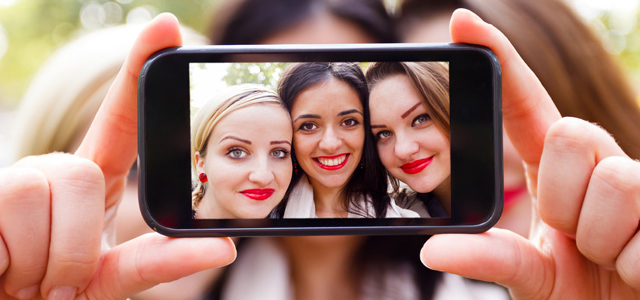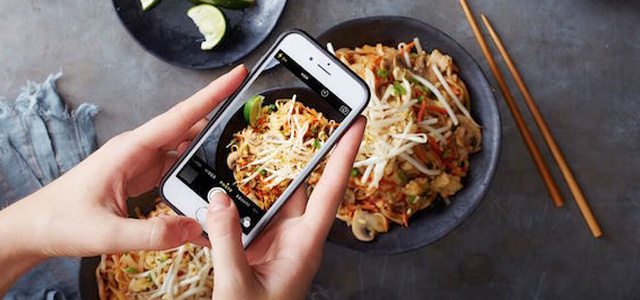Social media has become the new location for the ‘car park miracle’. You know the ‘car park miracle’ — it’s what happens as you drive into the car park before church starts. The disagreement you are having with your spouse is hushed, or the stress of work is covered up. Maybe it’s a financial problem, your depression or an addiction. Whatever it is, it gets airbrushed and you pretend life is ‘perfect’ for the few hours of a church gathering.
Sound familiar? But the power of social media takes that ‘car park miracle’ to a new level. I’m sure you see examples of it online, all the time. A beautiful shot of friends and food. Smiling faces, great times… “Love these people!” #lovemyfriends #nofilter
But is that ‘perfect’ snapshot always an accurate summary of what’s really going on?
Like it or not, our ‘sharing’ online is a prolonged siege of propaganda. We bombard our friends with heavily filtered digital versions of our actual lives. We each stand on our own podium and broadcast hand-crafted versions of ourselves to the online masses.
But as we do that, what are we saying about the value of the moments we are not sharing? We wield the freedom of social media to selectively crop and focus our lives. For the viewing of others, we only draw attention to some moments, not others. As we do, the power we have to present ourselves anew is staggering.
Fragmented online lives
Our fragmented online lives are running rampant, and threaten to take over our REAL lives. Here’s a post of mine on Facebook recently: “Listening to chill hop, eating the most amazing croissants. These are no Le Tigre or Blue Steel. These are Magnum all the way, baby.”
Please, allow me to translate: as I listened to some relaxed tunes, I enjoyed croissants so much that I began to refer to them in terms used in one of my favourite films, Zoolander. So, now that you’ve got that, what do you actually know about me from this Facebook update? Yes, the croissants were amazing. But what I didn’t say was that I was lonely and wanted to connect with people I cared about.
Had I lied in that post? Well, no. But I definitely had not gone anywhere near presenting the whole picture of where I was actually at.
As this example indicates, the fact is that we do not share all of our ourselves. Indeed, we only share parts of us – fragments, like a single frame snatched from a movie. We create a brand for ourselves and market it, and inevitably can be ashamed that our embodied lives (our real lives) do not live up to what we have advertised. And then we wonder why our lives aren’t seemingly as good as everyone else’s.
Sharing our digital lives
Have we overlooked the harm we may cause each other by how we choose to share our lives online? Think about it: We are horrified at the damage pornography does to relationships in its twisted representation of intimacy, and we are angry that our children are subjected to a fashion industry that photoshops models into impossible forms. Yet, at the same time, we are actively engaged in similar distortions of our own lives, online. What we filter or crop might seem harmless, but is it?
People have told me about how they feel when they are sad, lonely and depressed, and there is that constant barrage of beautiful moments from friends online. Instead of sharing in this joy, all they feel is distressed; the darkness they are going through is only emphasised.
So, the problem isn’t necessarily the intention behind whatever it is we post online. The problem can be more the effect of that post.
Self expression
What? How can we be expected to look out for others and how they might react. It’s tempting to think that the problem lies with everyone else, but I’m not sure that’s the society we are called to in Christ. After all, are we not to be building each other up in love? (Romans 15:2)
Likewise, the calls to unity — expressed in positive, selfless community in Ephesians 4 — must spur us on to take responsibility to consider, at least, the impact of our activities (online or not). For Christians, how we act among each other matters. It’s not about deception, but about love. And if that means adjustments to serve others, should we not do it?
If you are anything like me, you want to rile against this, defending the right to self-expression. But we can easily be seduced by the cut-and-paste collage of our lives. As we stagger under the weight of being able to create ourselves in our own image, we may forget that we are not in our own image, but in God’s. (Genesis 1:27)
If we are in the image of God, surely that’s the image we ought to be aiming to project, both in our physical and digital lives.
How will your next post align with this? What will you share and what are you projecting?
Mark Delbridge













